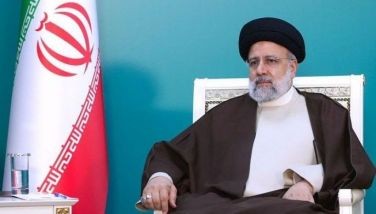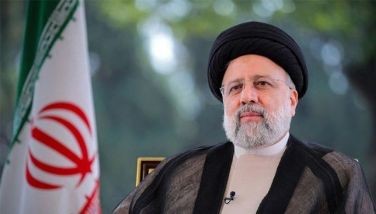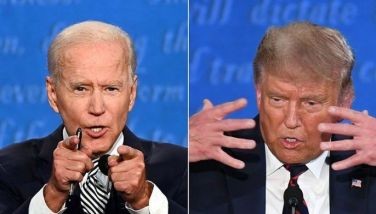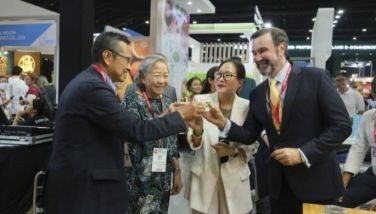News Analysis: Iran pins hope for changes on new president Rouhani
TEHRAN (Xinhua) - Iranian voters have chosen Hassan Rouhani as their new president in the just concluded election Saturday, in which he won 50.7 percent of the votes, far ahead of his five rivals, showing their strong desire for changes for the country.
The president-elect won 18,613,329 votes out of 36,704,156, Iran's Minister of Interior Affairs Mostafa Mohammad-Najjar announced Saturday night. Hardline conservatives lagged far behind with their top contender Tehran mayor Mohammad Baqer Qalibaf garnering only 16.58 percent of the votes.
Hardliners had been perceived to boast great advantages against the moderate till just days before the election. But Rouhani jumpstarted his chances by raising the banner of reform during the final stage of his campaign, which echoed Iranians' ardent desire for change.
Rouhani's landslide win stemmed from a large turnout of voters who saw him as the best choice to translate their hopes into real changes in Iran's domestic and foreign policies, analysts said.
Touting "flourishing economy, pragmatic politics and dynamic culture" as three pillars in managing the country, Rouhani succeeded in capturing the desires of the Iranian people for the future and fate of their country.
Rouhani has promised to form a government of "wisdom and hope" and draw up a blueprint on civil rights. "He will bring great changes to the future of our country, both domestically and internationally, especially in Iran's economic development, foreign policy and nuclear issue," Sadeq Zibakalam, professor of Tehran University, told Xinhua in an interview on Saturday.
PROMISE CHANGES
Rouhani is elected at a time when people can no longer tolerate the status quo in Iran, especially when the country's economy was hit hard by Western sanctions, Zibakalam said.
With an inflation rate of over 31 percent and an unemployment rate of more than 20 percent, Iranian people found it increasingly difficult to make both ends meet.
"The apartment rent prices went up threefold, housing prices almost tripled in the past year. We cannot afford just to live any longer," said Amir Jalfarzadeh, a middle-class resident in Tehran.
To ease the impact of Western sanctions on Iran's economy, Rouhani has pledged to improve relations with the international community.
"I would promote constructive interactions with the world," Rouhani told his supporters in one of his campaign events, emphasizing Iran should cooperate with other countries on the basis of rationality and wisdom.
Rouhani's intention to mend ties with Western countries played a key role in his success. "By improving relations with the West, we ordinary people see promising future and our lives will get better," Jalfarzadeh said.
Rouhani is also considered the most likely candidate to bring change to Iran's nuclear deadlock with world powers. In 2003, when Rouhani was top nuclear negotiator under former President Mohammad Khatami's rule, Iran agreed to suspend its controversial enrichment of uranium.
Rouhani has pledged to return the nuclear issue from the UN Security Council to the International Atomic Energy Agency (IAEA), saying Iran's nuclear program is peaceful and should be settled with the IAEA.
In addition, Rouhani has also promised to promote political and civil rights in the country. "I'm obliged to defend people's rights to freedom of speech, participation in parties and preservation of their ethnicity," he said.
WHAT CHANGES TO EXPECT?
Although the president-elect hopes to improve relations with Western countries to ease pressure on Iran's economy, the country' s firm stance on its peaceful nuclear rights and nuclear enrichment prevents the West from easing their sanctions.
Iran's principle on its rights will not change. The country will remain firm on its support on Syria and Rouhani himself considers Israel an apartheid country, said Seyed Mohammad Marandi, a research fellow at the Institute of North American and European Studies, Tehran University.
However, the change of presidency gives new opportunities for many countries, including the Western countries, to reset their policies on relations with Iran, he added.
Iran's Supreme Leader Ayatollah Ali Khamenei has the final say on the country's key policies such as relations with major world powers and the nuclear issue.
Rouhani has to work under the guidelines of the country's set policies, but he can still play a role in the country's nuclear talks with the P5+1 group, including five permanent members of the UN security council and Germany, said Zibakalam, adding that Rouhani will also work out a series of measures to promote domestic economic growth.
He said Rouhani tends to find a solution or compromise in talks with the P5+1 group on the nuclear issue, and insists that Iran have its peaceful nuclear program but not at the cost of worsening ties with the Western countries.
"Rouhani does not look at the nuclear issue as an ideological battle between the Islamic Republic and the West at all," Zibakalam said.
"Of course, people should not expect sudden changes to the country, but some of the current policies will not continue. Changes will definitely come gradually," he added.
- Latest
- Trending































